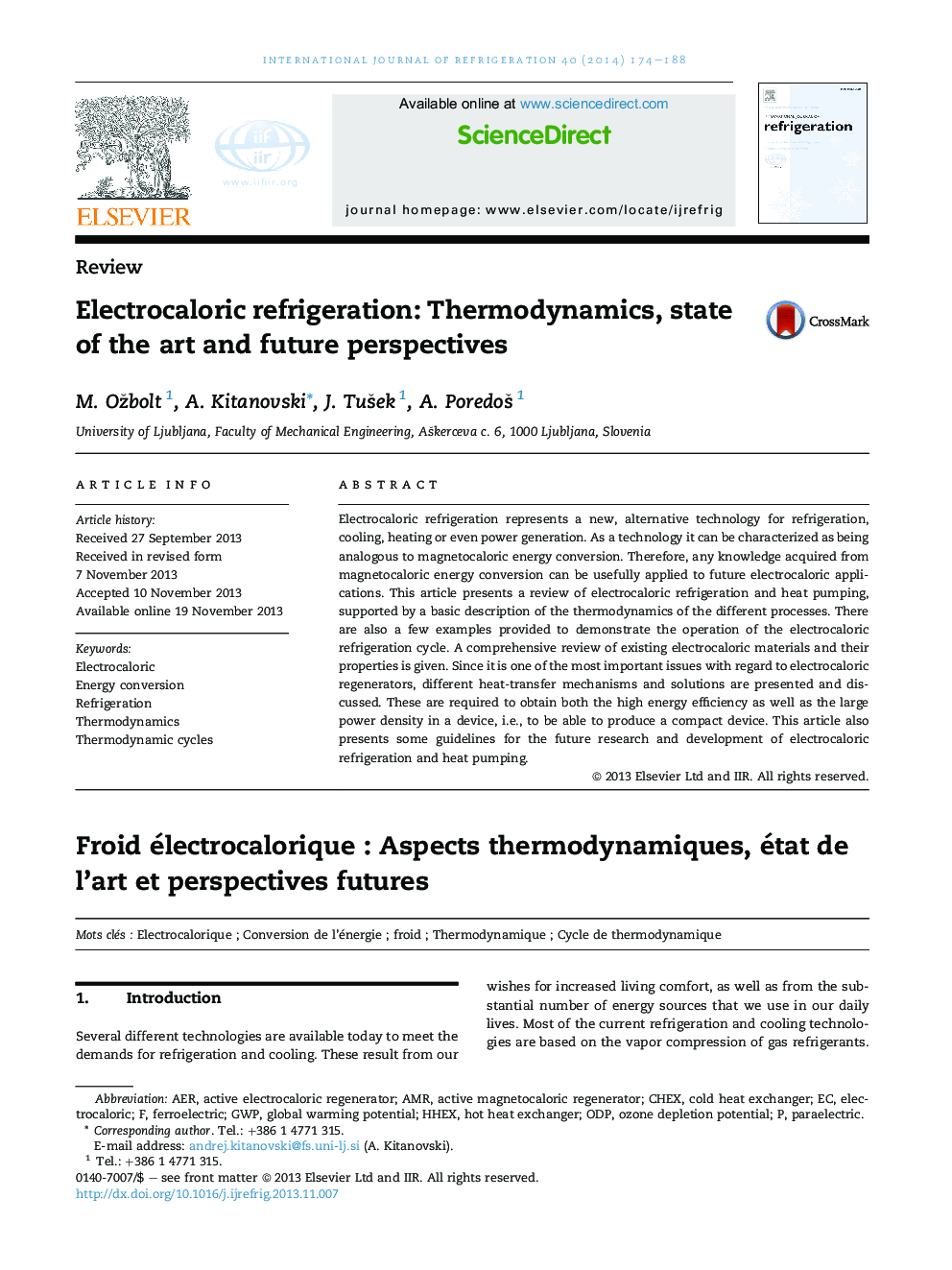| کد مقاله | کد نشریه | سال انتشار | مقاله انگلیسی | نسخه تمام متن |
|---|---|---|---|---|
| 789409 | 1466425 | 2014 | 15 صفحه PDF | دانلود رایگان |

• Thermodynamic of electrocaloric effect is described.
• An overview of nowadays known electrocaloric materials is made.
• The new concept of enhanced heat transfer and potential designs of regenerators are presented.
• Various electrocaloric thermodynamic cycles and guidelines for future research activities are provided.
Electrocaloric refrigeration represents a new, alternative technology for refrigeration, cooling, heating or even power generation. As a technology it can be characterized as being analogous to magnetocaloric energy conversion. Therefore, any knowledge acquired from magnetocaloric energy conversion can be usefully applied to future electrocaloric applications. This article presents a review of electrocaloric refrigeration and heat pumping, supported by a basic description of the thermodynamics of the different processes. There are also a few examples provided to demonstrate the operation of the electrocaloric refrigeration cycle. A comprehensive review of existing electrocaloric materials and their properties is given. Since it is one of the most important issues with regard to electrocaloric regenerators, different heat-transfer mechanisms and solutions are presented and discussed. These are required to obtain both the high energy efficiency as well as the large power density in a device, i.e., to be able to produce a compact device. This article also presents some guidelines for the future research and development of electrocaloric refrigeration and heat pumping.
Journal: International Journal of Refrigeration - Volume 40, April 2014, Pages 174–188